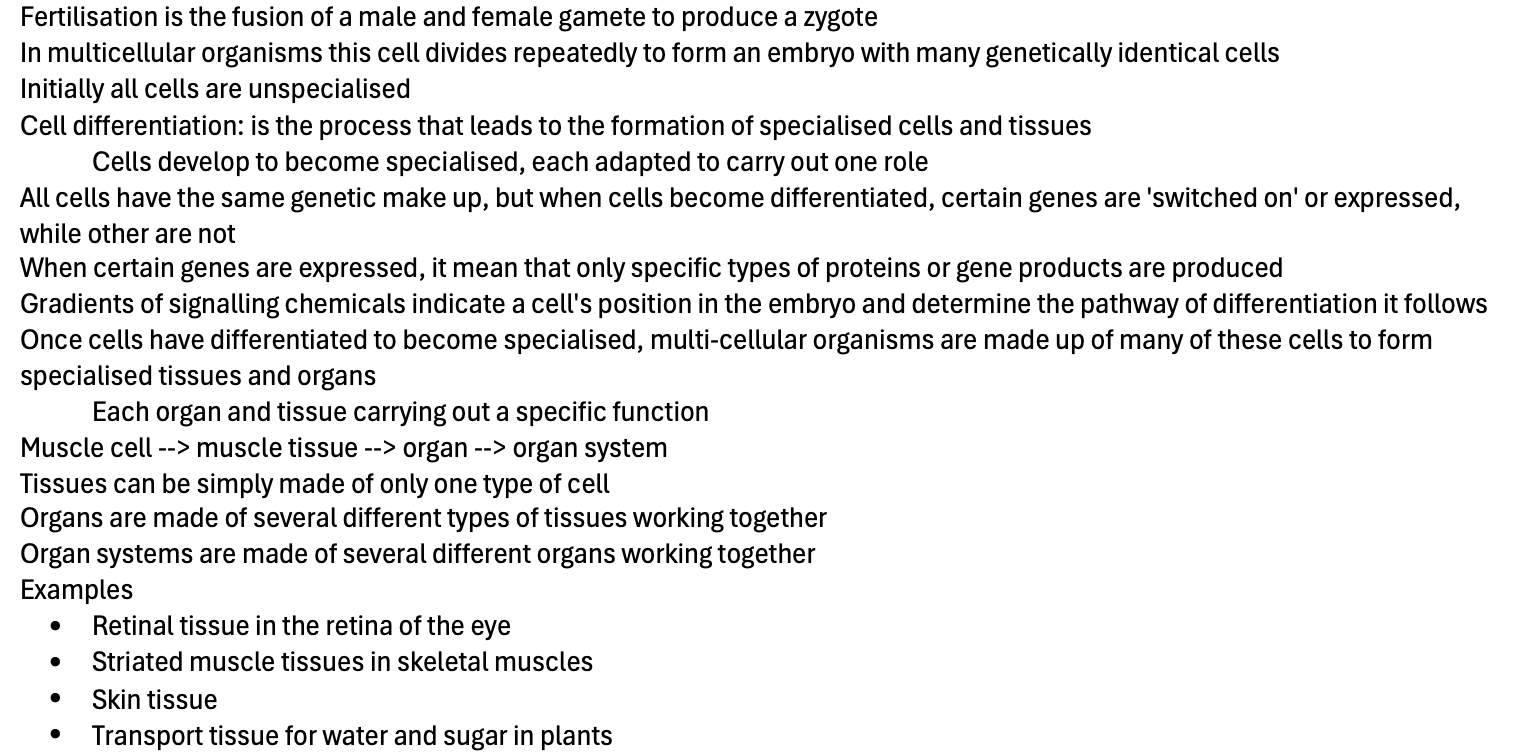Differentiation
Fertilisation is the fusion of a male and female gamete to produce a zygote
In multicellular organisms this cell divides repeatedly to form an embryo with many genetically identical cells
Initially all cells are unspecialised
Cell differentiation: is the process that leads to the formation of specialised cells and tissues
Cells develop to become specialised, each adapted to carry out one role
All cells have the same genetic make up, but when cells become differentiated, certain genes are 'switched on' or expressed, while other are not
When certain genes are expressed, it mean that only specific types of proteins or gene products are produced
Gradients of signalling chemicals indicate a cell's position in the embryo and determine the pathway of differentiation it follows
Once cells have differentiated to become specialised, multi-cellular organisms are made up of many of these cells to form specialised tissues and organs
Each organ and tissue carrying out a specific function
Muscle cell --> muscle tissue --> organ --> organ system
Tissues can be simply made of only one type of cell
Organs are made of several different types of tissues working together
Organ systems are made of several different organs working together
Examples
Retinal tissue in the retina of the eye
Striated muscle tissues in skeletal muscles
Skin tissue
Transport tissue for water and sugar in plants
